Russian Invasion Of Ukraine Cuts off Some Of Iran’s Internet Capacity
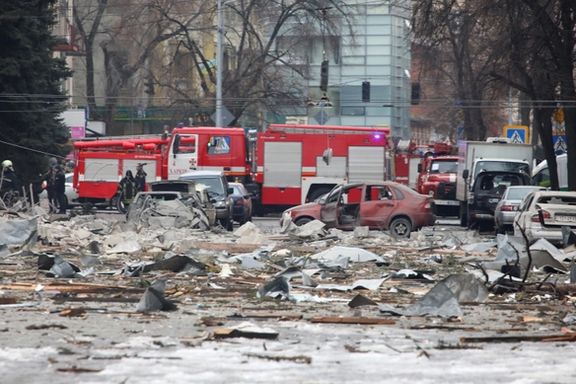
Iranian Communications Ministry said some 400 gigabytes of the country’s internet capacity was cut off due to the Russian invasion of Ukraine.

Iranian Communications Ministry said some 400 gigabytes of the country’s internet capacity was cut off due to the Russian invasion of Ukraine.
The public relations manager of the Ministry of Communications and Information Technology, Mehdi Salem, made the announcement in twitter on Saturday.
He said that according to the country’s network operations center, this “400 gigs” were provided by Russia’s largest digital services company Rostelecom through Ukraine and has been cut off since Saturday evening.
Salem added that since the network routes from Ukraine remain disrupted and takes a long time to reconnect, the ministry is seeking to establish alternative links through other international routes.
As Ukraine's internet service has been disrupted by Russia's invasion, Elon Musk’s company SpaceX has activated global satellite internet constellation Starlink for the Ukrainians.
Internet services on mobile phones and landlines were also disrupted Friday morning in the Iranian capital Tehran and the nearby city of Karaj.
The Iranian government has been blocking thousands of websites and top social media apps for years in a bid to control the flow of information.
Iranians were outraged last week when a group of 18 hardliners in a parliament committee claimed that they had ratified a bill to further restrict internet and social media access.
Some people reacted to the Friday disruption by blaming the authorities, saying the outage was a trial run for the plan to further restrict internet and social media.
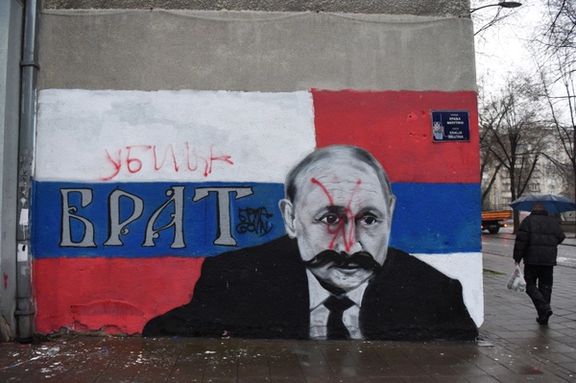
A former senior commander of Iran's Revolutionary Guard, IRGC, has called Russian President Vladimir Putin "a dictator" and his attack on Ukraine a “disgrace.”
Also, a well-known academic in Tehran says Putin is "unpredictable" and "has done more harm to himself than to those he considers his enemies." He has called on Iranian officials to distance themselves from Putin.
This comes while Iran's top officials’ including Supreme Leader Ali Khamenei and President Ebrahim Raisi have expressed support for the Russian invasion of Ukraine blaming the United States for the crisis.
Hossein Alaei, the former chairman of the IRGC joint staff (1997-2000) and commander of Iranian navy (1985-1990), has written in an article that although the war in Ukraine has so far served the interests of the US and China, it has caused a disgrace for Russia's “dictator Putin”. The article was published in Jamaran website, close to Iran's reformists and managed by Hassan Khomeini, a grandson of the founder of the Islamic Republic.
Alaei said that the war will last long with long-term implications for the people of Russia and Ukraine. He opined as a result of the war the people of Russia will look forward to an end to Putin's presidency.
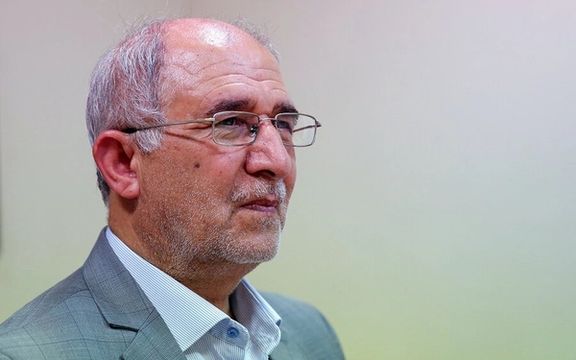
General Alaei stressed that ten days after the start of the war, Putin is now entangled in the quagmire of the occupation of Ukraine and cannot save himself from the trouble he has created. He added that thanks to the resistance by Ukrainians and the alliance of Europe and the United States against Russia, Putin finds himself in a tough situation. "Although it is too early to talk about the outcome of this war, one can imagine that it is a war of attrition to last for a long time," he added.
Assessing possible outcomes of Putin's action, Alaei said that despite the destruction of infrastructures and the displacement of nearly a million Ukrainians, reinforcement of Europe's military capabilities and solidarity between the EU and the US, as well as the expansion of NATO will be the consequences of this war. Meanwhile, Alaei warned that the Islamic Republic should understand and condemn Russia's aggression more than any other country as it has already experienced the Soviet Union's support for Saddam Hussain in his war against Iran.
In an Interview with the reformist daily Arman on Sunday, Iranian academic Pirouz Mojtahedzadeh called on Iranian officials to distance themselves from Putin. Mojtahedzadeh, a political scientist, quoted other academics as saying that Putin might even resort to using Russia's nuclear power if the conflict in Ukraine further intensifies.
However, he said Putin does not hold all the power in Russia and there are others around him who are watching his moves. They know that using nuclear weapons will do more harm to Russia than to other countries. However, he said that Putin has gone beyond the realm of logic and wisdom. He added that his behavior reminds everyone of former Iraqi dictator Saddam Hussain when he launched his invasion of Kuwait.
Mojtahedzadeh charged that Putin has lost his self-control under immense international pressure following the invasion of Ukraine. "I believe the sanctions imposed on Russia by the US and EU will destroy Russia," Mojtahedzadeh said, adding that, "Perhaps someone wishes to mess with the global balance of power. But this is no joke. No country can eliminate this balance."
Assessing Iran’s reaction to the war in Ukraine, Mojtahedzadeh said: "I have already warned that Iran should not look for unilateral relations with Russia and should prove this to the world by sticking to UN resolutions."
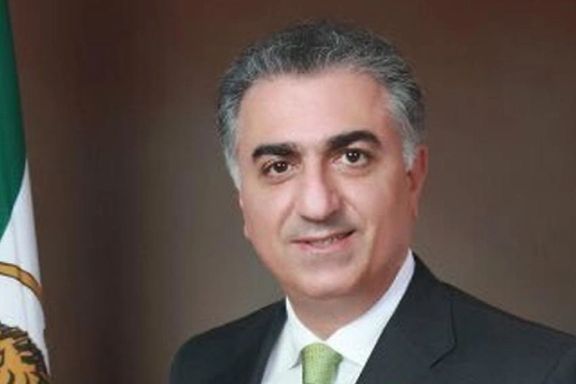
Iran's exiled crown prince Reza Pahlavi says Iranians stand in solidarity with Ukraine unlike “the dictatorial regime” of the Islamic Republic.
In a letter to Ukrainian President Volodymyr Zelenskyy, Pahlavi said that “the freedom loving people of Iran have defied regime threats and violence to protest the [Russian] invasion and show that they stand with the people of Ukraine”.
“While governments around the world rightly rally to your aid and people of every creed stand in solidarity with your own, the dictatorship in my country, Iran, has stood with those who have violated your territorial integrity and attempted to usurp Ukraine’s sovereignty”, he said.
Pahlavi added that the people of Iran “know the struggle of confronting a dictator as we stand up for freedom”, expressing hope that “when both our nations are free again, we will be partners for peace and prosperity”.
On Wednesday, the Islamic Republic abstained from voting for a UN General Assembly resolution deploring the Russian invasion of Ukraine.
Iran’s president and other officials have supported Russia’s move by blaming the United States and NATO for provoking the invasion.
Hundreds of Iranians on social media have been expressing anger at the invasion and criticizing the government’s position. Some are attacking Supreme Leader Ali Khamenei, calling him a lackey of Russia.
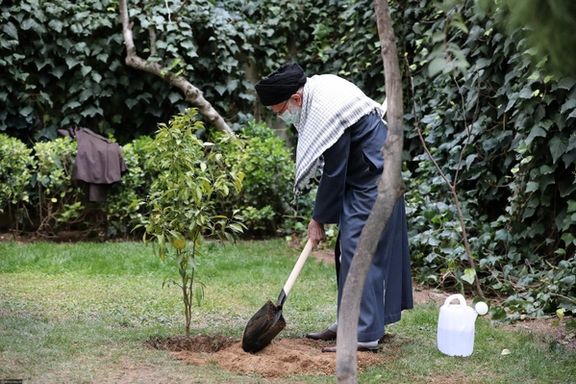
Iran’s Supreme Leader Ali Khamenei has planted two saplings to mark the national Arbor Day, describing planting of a tree as a “religious and revolutionary” action.
Khamenei planted the fruit tree saplings on Sunday morning, on the occasion of the national tree planting day.
He urged all government institutions to take measures to preserve the country’s water, soil, and wildlife.
Khamenei said, "The destruction of forests and the environment and vegetation is the destruction of national interests" and called on the authorities to protect trees from profiteers.
Despite Khamenei’s public expression of support for the environment, successive Iranian governments have left a bad record in protection of natural resources.
In December 2021, the head of the forestry scientific association, Ali Banagar, expressed concern about the speed of deforestation in Iran, enumerating the factors that fuel the trend, including the country’s aggressive pursuit of development projects through often illegal constriction of luxury vacation houses, wood smuggling and illegal logging, encroachment on forests and land grabs, forest fires, as well as pollution and landfills.
Hit by the most severe drought in decades, Iran is reportedly increasingly losing its forests and vegetation, with forest acreage having decreased from 19 million acres to 14.4 million between 1900 and 2012, and further shrunk to 10.7 million by 2015.
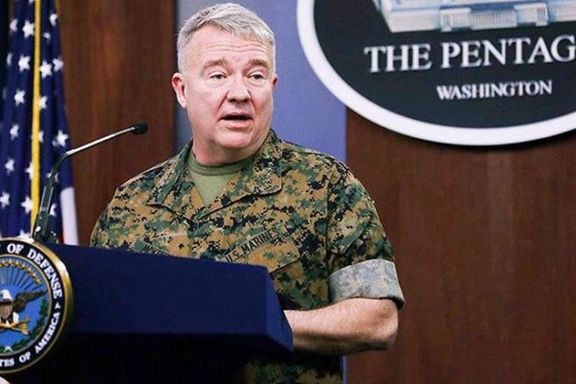
The outgoing chief of the United States Central Command (CENTCOM) says the US will do everything possible to prevent it from producing nuclear weapons.
During his farewell visit before stepping down as the head of CENTCOM, General Kenneth F. McKenzie told Israel’s Hayomthat the Islamic Republic is the region’s “principal bad actor” and “biggest threat to security”.
"We have a couple of goals with Iran”, he said, adding that the first is stopping Tehran from acquiring nuclear weapons, and then deterring Iran from taking offensive action either against US interests or its partners through their proxies.
Referring to Iran’s support for Houthis in Yemen targeting Saudi Arabia and the United Arab Emirates, and Hezbollah in Lebanon, or militias in Iraq and Syria, McKenzie expressed doubt that the US can stop the malign activities of Iranian proxies. “I don't know that we have the ability to actually stop that kind of activity… but what we can do is prevent escalation”.
He also highlighted that the expanding threat from Iran’s ballistic missiles, unmanned aerial systems, cruise missiles, adding, “Everyone sees the growth of this threat, which has been marked over the last five years”.
McKenzie spearheaded efforts to boost cooperation with Israel – which joined CENTCOM last year after being reassigned from the EUCOM – and with other countries of the region, including UAE, Bahrain, Egypt, and Jordan, through a series of joint drills designed to display a united front against Iran.
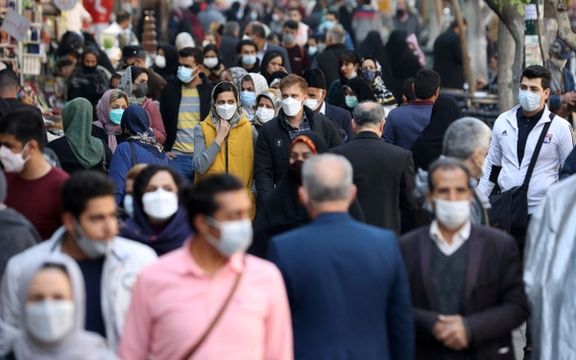
Two former senior diplomats in Iran have explained their vision about how the country will look like in 2050, emphasizing good governance, as it faces multiple crises.
Their conversation with Sharq newspaper, published on March 5, was recorded before the Russian invasion of Ukraine, obviously, without considering developments sparked by the ensuing international crisis.
Both diplomats are now working in academic and energy fields. Ali-Akbar Salehi was Iran's Foreign Minister (2009-2010) and (2011-2013) and nuclear chief (2013-2021). Abbas Maleki was the head of the Foreign Ministry's think-tank, the International Studies Center and deputy foreign minister (1980-1997).
Sharq's reporter Zeynab Esmaili, asked whether in 30 years Iran will be a developed country or a poor state crippled by water shortages and environmental crises, as current condition point to. Salehi said it is difficult to predict, however, it is a matter of good governance. If the government is not bothered by the needs of the people, one could say for sure that the country has no future.
In the 1979 revolution the people wanted a change in the style of governance and wanted to get rid of despotism, Salehi said. The chaos brought about by the revolution continued with debates about whether political reforms were more important or economic development. Should progress be put before economic justice? Or justice before freedom? Was freedom more important than security?
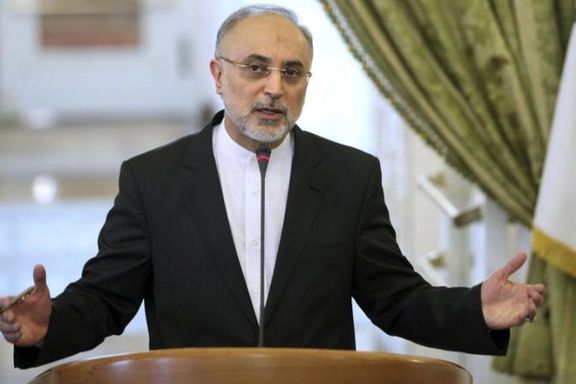
Salehi’s emphasis on good governance belies a general perception in Iran that the Islamic Republic has pursued harmful policies for too long and its ability to propel the country toward prosperity is highly questionable.
Salehi emphasized that having large oil reserves is not a substitute for good governance.
“Our roadmap to the future should be based on good governance, knowledge, democracy and attending to the needs of the middle class,” he said.
Maleki also emphasized good governance and the importance of planning. “Plans tell us where we are headed,” he said. So, if we wish to be at a certain point in 2050, we should start working today. But Maleki stressed that government control is better than leaving affairs in the hands of the private sector, claiming that Iran’s response to natural disasters have been more efficient than in the United States where private companies run the infrastructure, such as power and water.
International surveys of economic performance contradict the view that Iran’s government and economic system perform reasonably well.
Maleki also emphasized that developing fossil fuel resources are important for Iran’s near future.
Salehi agreed with Maleki by saying that oil and gas can revive Iran. “We have one percent of the world's landmass but 11 percent of its oil and 17 percent gas resources,” he said. There is no value in these resources unless we turn them into an engine of development. There are gigantic gas and oil reserve under Bandar Lengeh, but the port city has no pipelines. We should turn the reservoirs of Yadavaran and Azadegan oil fields into money. And there are a lot of resources still untouched in the northern part of Iran. Energy is capital but it is not endless. It will end one day. So, Iran should use it rationally.
However, looking at the record, Iran has sold well over one trillion dollars of oil in the past four decades but because of its centrally controlled economy and inefficient governance it has little to show for it compared with regional counties such as Turkey that has no oil or the United Arab Emirates.
Asked why Iranians believe that the government has left them to their own devices or in other words has let them down. Salehi expressed hope that the system can still correct itself, but the young generation is mostly hopeless about the future of the country and they blame policies pursued in the past three decades since Supreme Leader Ali Khamenei has ruled the country.